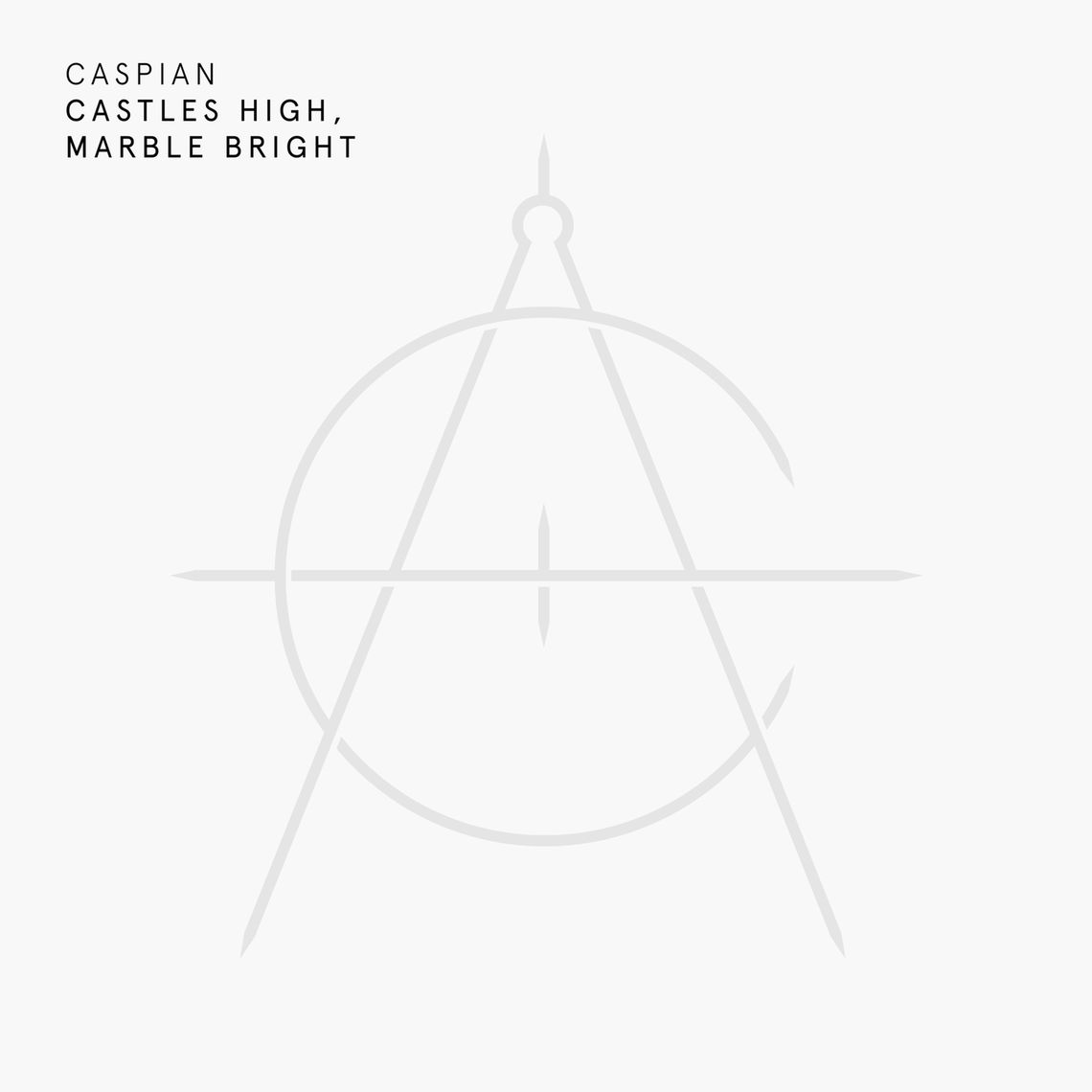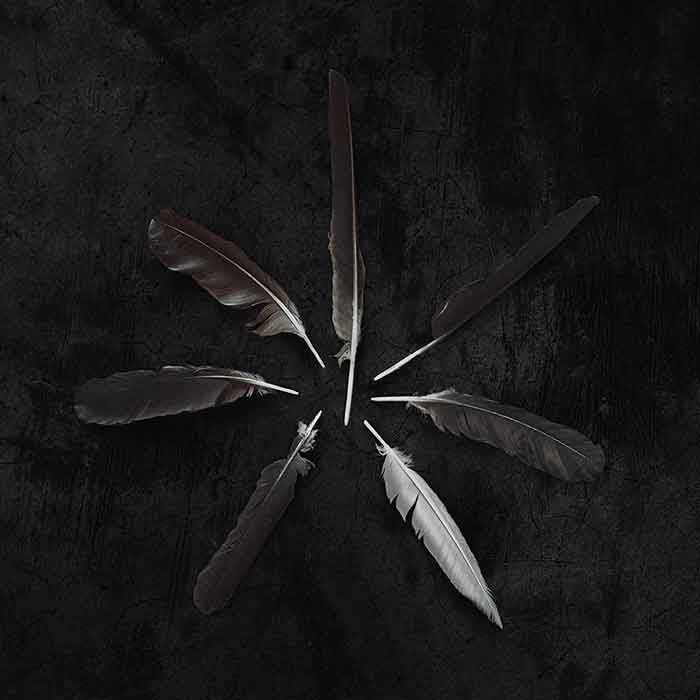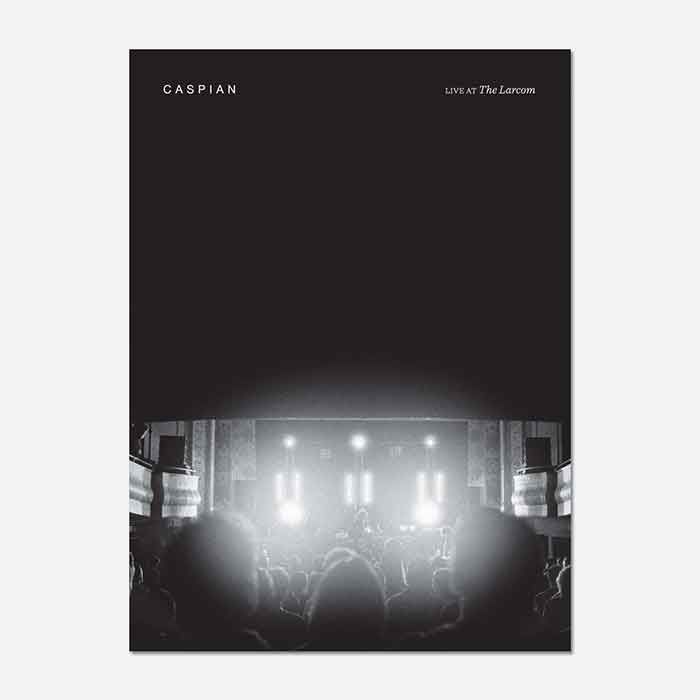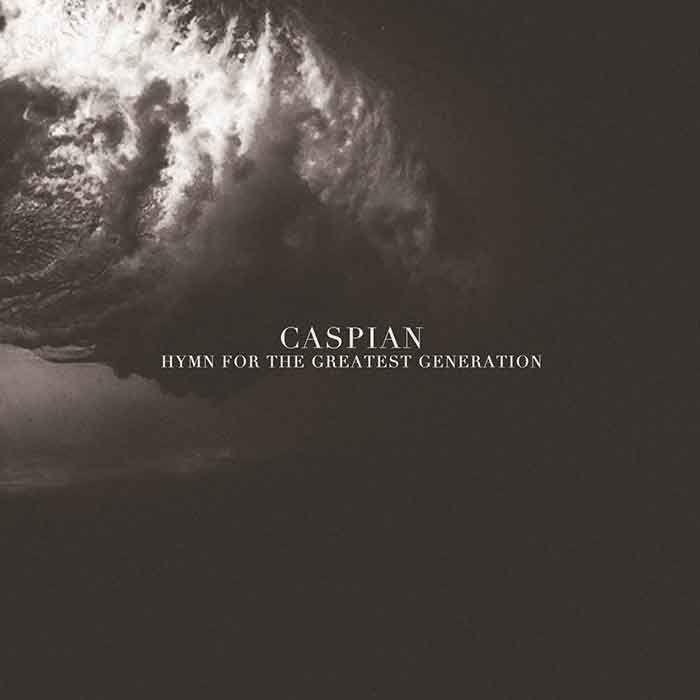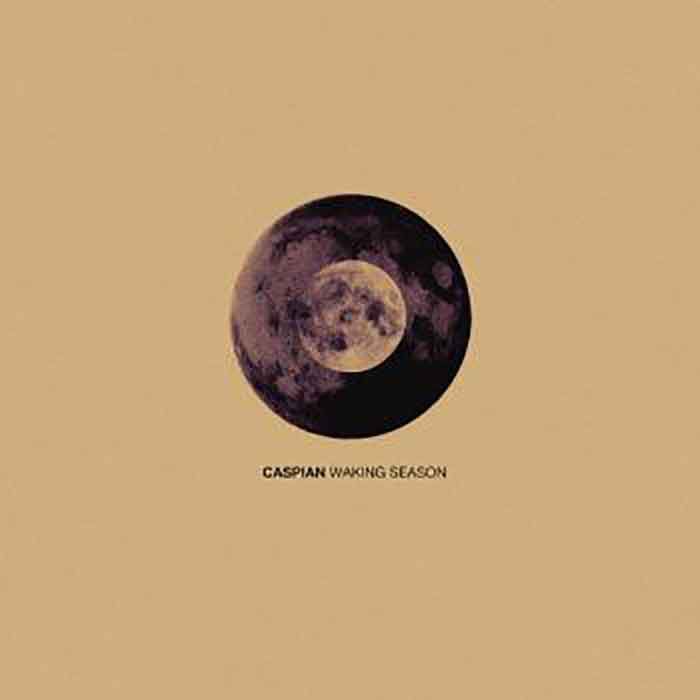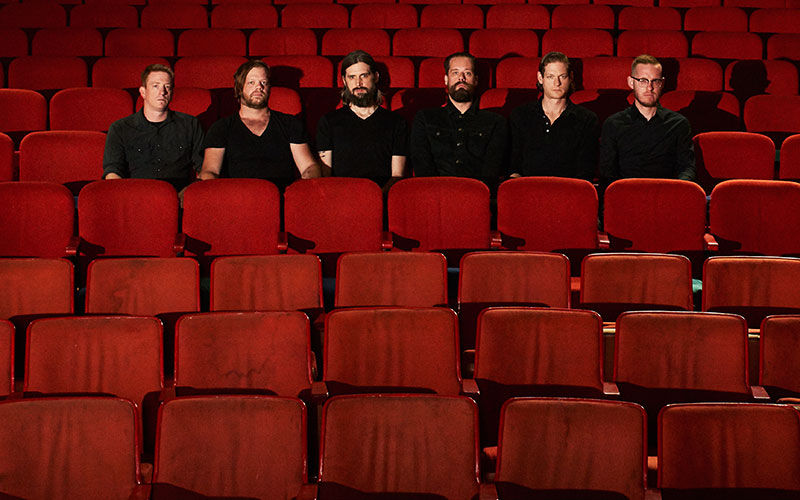
Caspian
It's been a while now since the term "post-rock" was first introduced to describe that fertile crescent of rock music that accentuates sound, rhythm and texture over traditional song structure - in short, freedom over form - but lately, even the music itself seems to be moving beyond the imagery of the language. From an artist's perspective, that's no easy feat to pull off, but over the course of three albums and nearly ten years in the trenches, Caspian has emerged as an elite band that deserves a place in the conversation about the changing face, sound and scope of instrumental rock music.
Waking Season is their strongest statement yet - a fully immersive and almost mystical sonic experience that breaks open possibilities and busts through barriers with each new listen. Recorded and mixed with producer Matt Bayles, whose matchless work with Isis, Mastodon, Minus the Bear, Russian Circles and MONO alone has made him a creative force in prog-metal and noise-rock, the album marks a real transformation for the band, according to guitarist and founding member Philip Jamieson.
"With this record we became a little less self-conscious about what we're doing," he observes. "We let go of those general fears that you have when you start going into new territory - wondering if people will like it, or if it's going to connect. I think the letting go of egos was a real turnaround for us. We really believe in this record, and I guess the boldness that we feel about the music is now reflected in the album title."
It's a confidence that's been inexorably building since 2003, when Jamieson and three friends - guitarist Calvin Joss, bassist Chris Friedrich and drummer Joe Vickers - took over a rundown factory near their home base in the quiet beachfront town of Beverly, Massachusetts. Almost immediately, they started bashing out yh6the propulsive rhythms and ecstatic washes of guitar-driven sound that simmered at the core of their first EP, 2005's You Are the Conductor. They were channeling influences as far-flung as Pink Floyd, Penderecki, Mogwai, Godspeed You! Black Emperor and more, but they'd also tapped into a seam of their own. Jamieson and Joss, with their intricately layered guitar parts, could be as meditative as they were explosive, while Friedrich and Vickers showed they could lay down a heavy tread of low end and big beats without sacrificing dynamics - the hallmark of any rock rhythm section that has its ears wide open.
In 2007, the band released and toured the U.S. behind a full-length album, The Four Trees, and expanded their ranks when classically trained guitarist Erin Burke-Moran joined the fold. As unique as a three-guitar lineup is in any style of music (think of Iron Maiden or even Lynyrd Skynyrd, for starters), it's no picnic unless everyone is listening closely. "Erin is probably the greatest guitar player I've ever worked with," Jamieson says. "He's really into Segovia and Bach and a lot of the Spanish players, so he has amazing skill and an amazing ear for music." Burke-Moran makes his presence felt on 2009's Tertia, which ripples with chordal explorations (on songs like "Ghosts of the Garden City") and hypnotic textures ("Epochs in Dmaj") that were more implied, rather than heard, on the earlier Caspian recordings.
Which brings us back to Waking Season and the single-minded "all for one" sense of purpose that drove the making of the album. The band had been actively seeking a new sound, but after a few false starts, they realized as a unit that the only way to move forward was to air everything out - every hang-up, every emotion, and most importantly, every idea.
"We try to keep the band as democratic as possible," Jamieson explains. "Anybody can bring whatever they have to the table, and I think some of the guys were a little hesitant to present their ideas, just because they were pretty different than what we'd done before. So after a bunch of long discussions, somewhere around mid-May [in 2011] we had a resurrection, and then it was off to the races. I think those conversations created an environment where everyone felt comfortable bringing their ideas to the table, no matter how different or strange they might have been."
Possibly the band's most radical move was recruiting Bayles to produce the sessions. "We've always called the shots when it comes to how we record and mix," Jamieson says, "so at first, working with Matt was a shock to the system, but I think it was exactly what we needed. He's very specific and has a lot of confidence in his own approach, so we just had to let go of that control, and you can hear the results of that. The music on this record is a lot more patient; it takes more time to develop, and I think we practiced that during the recording process. In the end, it was a humbling experience, but it was enlightening too."
Fittingly, Waking Season opens with the title track; it starts with a simple piano figure and wind effects, building slowly into a lush, textural soundscape that seems to break like the morning sun over a distant horizon. "Procellous," by contrast, surges with voice-like sounds that set the stage for the guitars - and a live string quartet - to propel the song into the stratosphere. The ten-minute epic "Gone in Bloom and Bough" oscillates through multiple moods anchored by a ghostly vocal line - a first for Caspian, and a stellar example of the patience the band exercised in arranging each song's distinctive parts. By the time we get to the beefed-up drums of "Halls of Summer" and the backwards loops that underpin the jazzy, pastoral groove of "Akiko," it's clear too that the band has opened itself up to sampling and signal-processing, but never to excess. Like the faraway sustained guitars that whistle over the top of "Hickory '54," or the static- frying percussion loop that kicks off "Fire Made Flesh," every sound, organic or electronic, has its place.
"We wanted everything to sound as natural as possible," Jamieson explains. "We tried intentionally to stay away from using canned string sounds or super-duper sci-fi synth shit. All the textures are from the guitars, or stuff I filtered through a sampler, so it never sounds as cold and coarse as something that you might create on a computer. We just wanted to make sure that all the performances were from actual real instruments, whether they're live or processed."
And that's one of many discoveries to be gleaned from Waking Season: that in the right hands, the technology needn't diminish the humanity behind the music. There's certainly plenty of precedent for that approach, from the work of Brian Eno to Aphex Twin, but as the tools continue to morph, so does the music's potential, to the point where any band can easily define its own genre. Call it progressive, futuristic or revolutionary - call it post-post-rock, even. Whatever your preference, the intrepid musos of Caspian are onto something different. Brace yourself.
| Date | City | Tickets |
|---|
